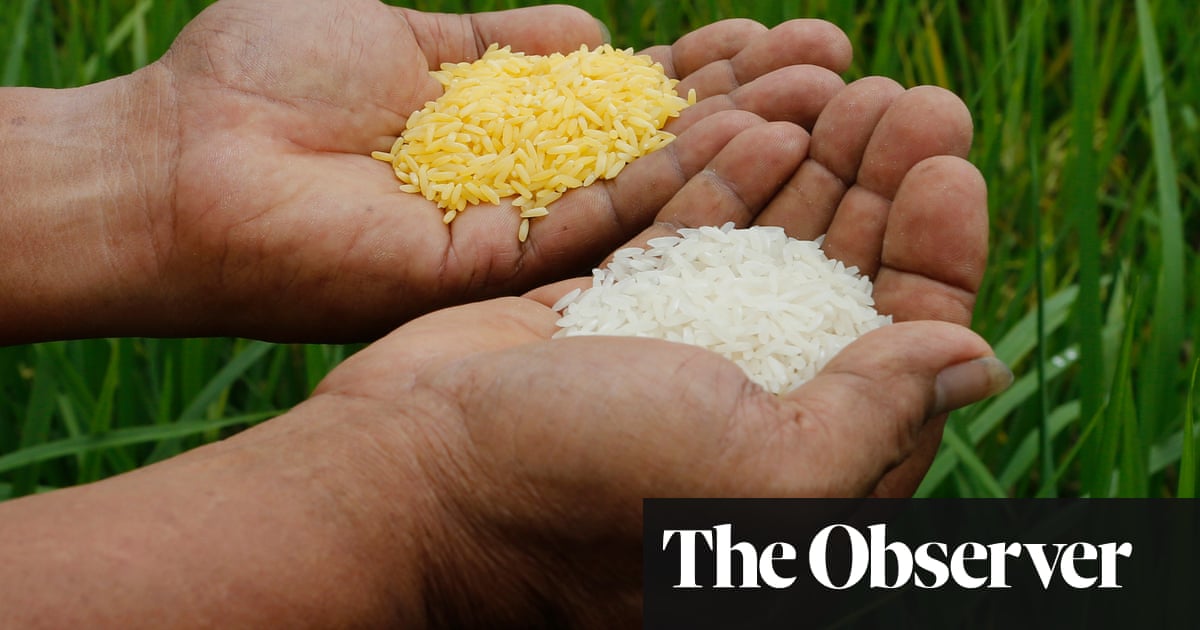Thousands of children could die after court backs campaign group over GM crop in Philippines, scientists warn
Scientists have warned that a court decision to block the growing of the genetically modified (GM) crop Golden Rice in the Philippines could have catastrophic consequences. Tens of thousands of children could die in the wake of the ruling, they argue.
The Philippines had become the first country – in 2021 – to approve the commercial cultivation of Golden Rice, which was developed to combat vitamin A deficiency, a major cause of disability and death among children in many parts of the world.
But campaigns by Greenpeace and local farmers last month persuaded the country’s court of appeal to overturn that approval and to revoke this. The groups had argued that Golden Rice had not been shown to be safe and the claim was backed by the court, a decision that was hailed as “a monumental win” by Greenpeace.
Many scientists, however, say there is no evidence that Golden Rice is in any way dangerous. More to the point, they argue that it is a lifesaver.



The huge difference is who holds the patent. The example you gave involves Monsanto, the patent holder for several GMO crops, and a terrible company that does everything in its power to make money by exploiting people. Golden Rice, however, is patented by the scientists who designed it, who likely only patented it so that a company like Monsanto couldn’t just make some similar GMO and patent it instead, using it to exploit people even more.
This same thing happened back when genes themselves were able to be patented; some companies like Myriad Genetics would patent genes like the BRCA gene, a common source of inherited breast cancer predisposition, so that they could charge an arm and a leg for testing. So, researchers and non-profits would patent genes that they found just ensure they could be fairly studied and tested for.
I don’t think that is important really. The big problem is that patents can be sold so the good guy(s) with the patent could turn out to be not as good as we hoped when someone offers them a bucket load of money.
Well, yes, but that’s kinda my point. If you don’t patent, you get exploited, like how the discoverers of insulin synthesis decided not to patent, so companies patented similar, but not exact methods, and now it’s incredibly expensive. But, as you said, if you do patent, there is still a risk of exploitation if the patent holder sells to an exploitative company. However, that exploitation is still less likely than when not patenting, so I support the practice so long as patenting is still possible.
I worked at a small nonprofit back when genes were still able to be patented; we mostly studied the condition Pseudoxanthoma Elasticum, and held the patents to a few of the genes associated with it. However, we still allowed people to research them freely - we only patented them to prevent a company like Myriad Genetics, who had been patenting genes so that they could sell expensive genetic tests, from patenting it instead. We celebrated when genes were no longer able to be patented; I imagine that the researchers working with golden rice will do the same if we’re ever lucky enough for GMO’s to no longer be able to be patented.
Relying on a hope that someone will do good is, and always has been, a terrible idea. We need to fix that shit at its core.
I wholeheartedly agree. I was working for a small genetics nonprofit when they removed the ability to patent genes, and the whole office had a party to celebrate. It was mostly a celebration about freedom to research and test, but we were also very excited to no longer have to deal with having a bunch of patents. Even though we let people research the genes freely, we still had a bunch of paperwork that needed to be done any time someone wanted to do so.